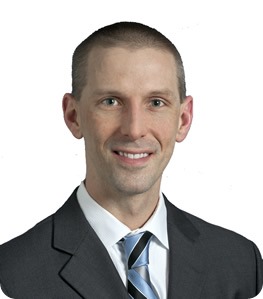The last decade has seen a strong movement towards the use of various quality measurements to grade medical care. In surgery, 30-day mortality is one of the most common benchmarks.
We wanted to determine if patterns of postoperative mortality showed any signs that the process of measuring medical care might actually alter how (and when) care is provided or withdrawn.
What were the main findings of this study?
We looked at day-by-day risk of mortality after cardiac surgery nationwide and found that the pattern of when patients died after surgery had two important timepoints where that risk changed: day 6 and day 30.
Did you expect to see a spike in mortality six days after cardiac surgery?
The change at day 6 was not surprising – it seems likely to us that that change reflects the separation of patients who experience a routine recovery and those whose recovery is more complicated.
Were you surprised by the jump in deaths at the 30-day mark?
The change specifically at day 30 has no similar obvious explanation. To us, it seems too much of a coincidence that this shift occurs right at the timepoint when surgeons and hospitals are often being graded on their mortality.
Why is there so much emphasis on one-month survival as a measure of surgical success? How was this marker chosen?
While 30-day mortality isn’t the only quality measure used, I think it became common because of the relative ease of calculating and reporting it.
Hospitals and surgical programs have tremendous administrative and regulatory requirements to satisfy, and there is some appeal in a quality measure that is simple and easy to compare from one place to another.
How do you think this spike can be explained?
Our study didn’t give us the information to directly draw conclusions about what causes the spike in mortality observed at day 30, but we believe it is likely that this has something to do with the idea that clinicians and hospitals have been given strong incentives to improve 30-day mortality. If deaths occur after day 30 (even at day 31) they don’t get counted in that benchmark.
Should we be concerned by this spike?
It’s possible that the decisions people make about what treatments to offer patients, or even the decisions about when to offer or withdraw certain treatments, are affected by the incentives these benchmarks create.
If that’s what’s behind our observations, I think that would be troubling, because it would mean that there is a conflict between what physicians might think is best for a patient and what is actually done, because of the desire to improve 30-day mortality.
What impact do you think the results of this study will have?
Our hope is that these results will help encourage the development of more sophisticated ways of measuring surgical quality and success.
For instance, if I was a patient contemplating surgery, I would be interested in knowing not only what my chances of dying within the first month after surgery are, but also, what my chances are of requiring extended rehabilitation, of needing care in a nursing home or home health nursing because I’m unable to care for myself independently?
Those kinds of scenarios are important changes in quality of life, but they aren’t reflected in mortality rates.
What are your future research plans?
We plan follow-up studies to determine if this phenomenon does in fact result from physicians thinking about the quality measures when they make treatment decisions, and if it exists in other areas besides cardiac surgery.
Where can readers find more information?
The full article is available at http://onlinelibrary.wiley.com/doi/10.1111/1475-6773.12174/full. It will appear in print in an upcoming issue of Health Services Research.
About Dr. Bryan G. Maxwell
 Bryan G. Maxwell, MD, MPH is currently an Assistant Professor in the Department of Anesthesiology and Critical Care Medicine at the Johns Hopkins Medical Institutions in Baltimore.
Bryan G. Maxwell, MD, MPH is currently an Assistant Professor in the Department of Anesthesiology and Critical Care Medicine at the Johns Hopkins Medical Institutions in Baltimore.
A graduate of the Stanford University School of Medicine and the University of California, Berkeley School of Public Health, he is a cardiac anesthesiologist trained at Stanford University and Johns Hopkins University and specializes in the care of adults and children with cardiovascular disease.
His research focuses on the outcomes and public health and resource utilization implications of complex cardiac surgical care, including the population-level effects of congenital heart disease, heart and lung transplantation, the use of mechanical circulatory support, and the perioperative care of patients with severe pulmonary hypertension.